#lauded
Explore tagged Tumblr posts
Text
If your life is horrible and you need a new source of meaning and direction.... Do NOT find religion. Learn to identify plants.
#Me Fein#There is a terrifying worldwide shortage of people who know how to identify bramble/blackberry species.#We haven't sorted out dandelions yet#Or nettles#Getting to know your neighbours changes your life#You're no longer alone! Rubis fruitcosus is there.#Plus if you're under 40 you will suddenly be admired and lauded by old ppl who share your hobby and thought no one gave a shit anymore#Botany#Plants#When u write things about botany you can be assured they will be read by weirdos for centuries to come#Or if the text is lost itd loss will be mourned by weirdos for decades to come
86K notes
·
View notes
Text
Kourtney Kardashian lauded for being 'real' unlike her siblings
Kourtney Kardashian lauded for being ‘real’ unlike her siblings Kourtney Kardashian isn’t just soaking up the sun, she’s basking in the praise from fans who applaud her for being the most “real” and “relatable” member of the Kardashian-Jenner family. During her vacation, the Poosh founder was generous enough to offer a sneak peek into her family getaway, posting a series of pictures from the…
0 notes
Photo

PRIMA PAGINA The Jerusalem Post di Oggi martedì, 06 maggio 2025
#PrimaPagina#thejerusalempost quotidiano#giornale#primepagine#frontpage#nazionali#internazionali#news#inedicola#oggi pose#home#from#kibbutz#interview#south#yemen#diplomat#airport#page#lauded#dance#receive#honorary#jets#bomb#port#area#sixth#raid#since
0 notes
Text
"VA Halts Billions in Cuts Backed by Musk Amid Outcry Over Care"
#VeteransAffairs #ContractCuts #HealthServices The Department of Veterans Affairs has recently made the decision to halt billions of dollars in planned contract cuts. This decision comes after receiving feedback expressing worries that these cuts could have a detrimental impact on essential health services for veterans. Lawmakers and stakeholders have raised concerns about the potential…
0 notes
Text
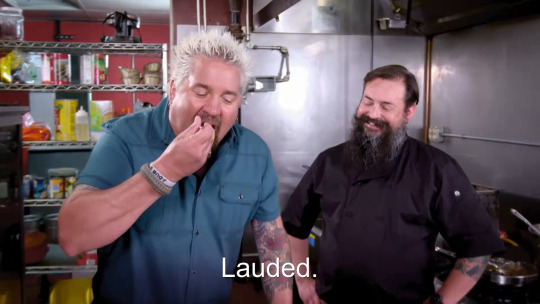
[Lauded.]
1 note
·
View note
Text

Todays Word Of The Day is: Vaunted
Vaunted originates from the Latin verb vanitare(to boast). English usage of the word began in the late 15th century.
#word of the day#unscramblerer#emphasized#esteemed#distinguished#lauded#notable#prominent#exalted#famed#extolled#acclaimed#renowned#boasted#celebrated#praised#vaunted
1 note
·
View note
Text
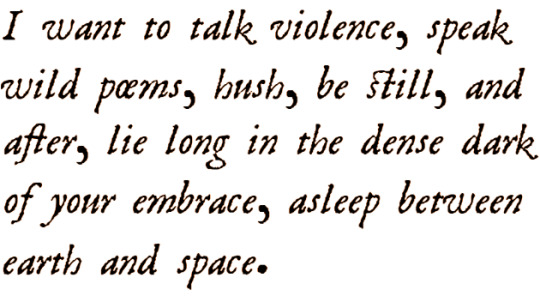
Marie Ponsot, from The Collected Poems of Marie Ponsot; "Matins and Lauds,"
#lit#marie ponsot#poetry#quote#words#matins and lauds#writings#quotes#fragments#dark academia#selections#typography#p
610 notes
·
View notes
Text

i'm ready to try
#This drawing is kind of personal to me#I recently graduated (CUM LAUDE WOOOO!!!!) and its like. not to get depressing#but when i was younger i was never sure whether i would make it to this point#When i was going through what i consider to still be like. the worst time of my entire life#This fictional character was there for me and she was something for me to latch onto and cope with#eGem helped me a lot with being able to process my emotions at the time but also helped me to reflect on myself#which i think is a big reason as to why I'm really happy with where i am with myself right now#I'm going off to uni next school year to study astronomy!!! which!!!#Im also doing because of eGem!!! She ignited this kind of childlike wonder for space for me#I love doing math and physics and whilst Im still a bit scared because. honestly i don't know whether this is what i want to do with my lif#I think i'll be okay either way#either way i wanted to draw egem again even if i haven't done so in a while because its like#i think i wouldnt be who i am without her. i think i'd be a lot worse off#so like. thank you empires smp thank you geminitay thank you egem This drawing is me expressing my gratitude#AND THANK YOU AUTISM!#empires smp#empires smp s1#empiresblr#esmp#geminitay#art#fanart#alice.art#mcyt#mcytblr#song is andromeda by weyes blood... obv.. you guys know me by now :oP
3K notes
·
View notes
Text


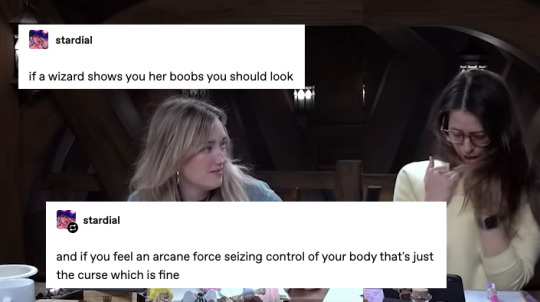

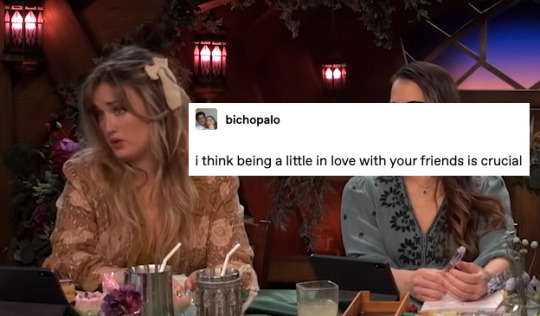

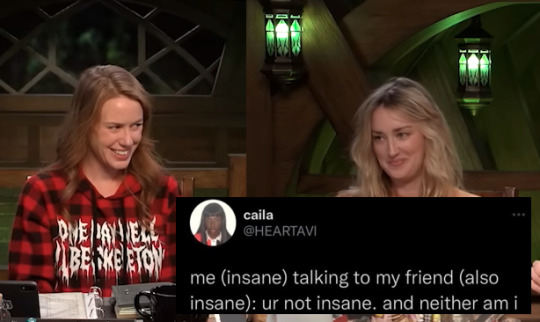
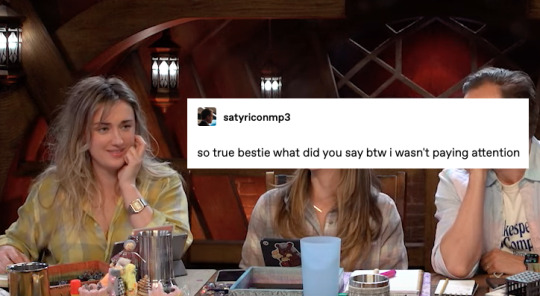
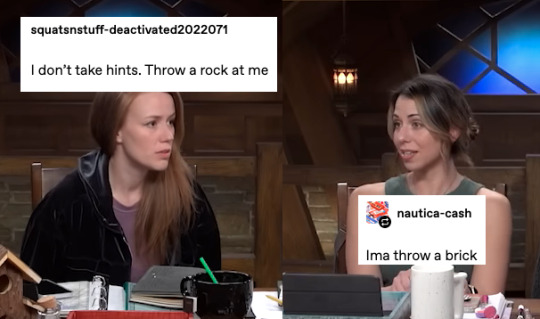
bells hells chaos, volume 5: witchy bitch edition
#my BEST girls#bells hells#imogen temult#laudna#fearne calloway#imogearne#does laud x fearne have a name???#what about faundna. get it because shes fond of her. im cute#imodna#text post meme#cr3#witches be bitches
4K notes
·
View notes
Text
DP x DC AU: Bruce is the one to invite Constantine over, and no, it's not to improve his tenuous working relationship with the asshole. It's the opposite of that.
---
Danny had become a frequent visitor of Wayne Manor in the last few months, and Bruce had to admit that while the kid was certainly a bit ominous for his liking for a partner to Tim, he was a generally kind and happy soul. They'd been dating for a lot longer than the Bats knew of- Kon had been the one to let it slip to Jon who told Damian and so on- and since the relationship was no longer secret, Tim brings him to family functions.
The thing about Danny is... He's dead. More than half of the time. Which again, is not Ideal for Bruce's wishes for Tim's future husband, but it also means that he reviles in being alive. Danny is downright joyous about using his time left on earth properly. He makes Tim eat real food, enjoy real sleep and generally live a more fulfilled life than he had been. The whole family noticed the changes in Tim, and it made them like Danny even more.
So after a particularly grueling day of dealing with Trigon and therefore the JLD's lack of coordination and sensible planning- Bruce gets the idea. John couldn't fucking contain himself admonishing Bruce, and perhaps it was vindictive, but Bruce figures that John should meet Danny. Sans context of course.
...
John is really over dealing with Batman's prissy, over complicated and perfectionist attitude. Come to the Cave he'd demanded, as though John didn't have a favorite bar to get back to, deal with a ghost he ordered like John didn't have other priorities than some random shade.
When walking into the space however, the second his teleportation portal closed, John knew something was deeply, deeply fucked. The shadows were growing longer, the second hand on his watch ticked slower, the air smelled of sulfur and... Red Robin was sitting working at the computer like nothing was wrong. But what was wrong, was the kid was marked by The End. Marked by The Infinite. FUCK.
John knew Death, the Endless, and knew she could pick favorites just like her siblings (Dream's immortal drinking buddy comes to mind). But this wasn't her work, this was something other.
"Mate- the Bat said there was a ghost?" John feels like he might throw up, the eerie atmosphere complicating what should have been a simple request.
"Uh, obviously." The kid didn't even look over from his screen or pause his typing.
John slowly approached, looking over each shoulder a few times, turning in a few circles as the shadows appeared to dance and echo within the cave. He could see his breath, the air became so cold so suddenly. And then, with the gentleness of a pin drop, a new agonizing sound appeared with a Kid walking down the cave stairs. The aura of the room turned dark, every cell in John's body screaming to run, that this was basically the little girl from the ring crawling through the TV as the young man walked down the steps.
"Babe, your grampa says that dinners going to be ready in a second. Oh, uh, hey dude." The creature speaks, turning his eyes to John for only a moment to study him. It feels equivalent to a butterfly being pinned by its wings.
"Y-y-you, you're, you're one of the Endless?" John stutters, his body reacting in fear despite the nonchalant posture of the Beast. The young man rolls his eyes.
"Nah, one of the Ancients but like uh, I'm new in town. And hon seriously don't be late, A made tiramisu for dessert and you're not allowed to have any if you're late and I don't want to deal with you pouting."
"You had me at Tiramisu!" Red stands up from his computer and then turns, "John, what are you doing here again?" Red Robin finally looks over at him, completely confused.
"Just leaving." John mutters, his eyes still trained on the ANCIENT.
---
Bruce could barely hide his laugh when Tim reported the Magician meeting Danny in the cave.
That'll show the asshole to question Batman's knowledge of the occult.
#dcxdp#dpxdc#dc x dp#dp x dc#danny phantom#dc crossover#dp crossover#long post#braindead ship#deadtired ship#timxdanny#bruce approves of their relationship and not just cause he can laud it over constantines head#bruce beefing with constantine#danny is an ancient#also works for ghost king au's but im kind of burned out on those rn#also works for literally any other ship or adoption au technically but my shipper heart must beat on#john constantine#mentioned sandman comics
3K notes
·
View notes
Text
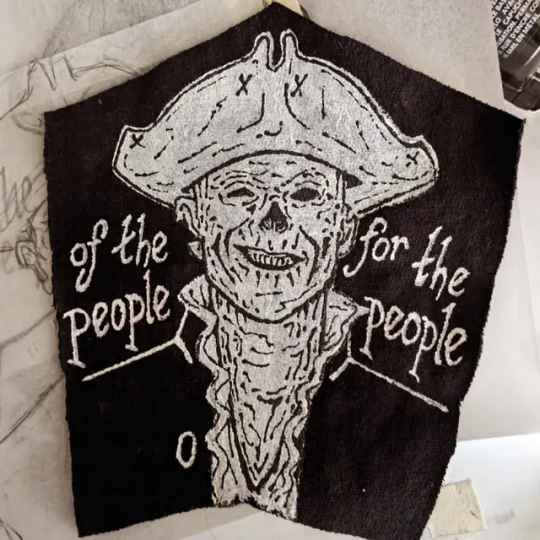
Wait. I keep having to do this but. Did I post this?
445 notes
·
View notes
Text
Writing lessons from Tony Gilroy
Oh yes, you heard me.
In many ways, it is much easier to tell what makes a story work for you when you're engaging with a story that is not working. Because with a thing you like, your brain just goes "goooood" and that is far more difficult to parse than "this one thing is bothering me every time it comes up, why is that?".
So. Let's turn this mess into something productive.
Worldbuilding
Chekov's Open Pit Mine
The complete lack of follow-up on what happened on Kenari, or what became of the other children there, or what, if anything, is currently happening there, frustrated me throughout the entire show. They spent quite a lot of time and production value on the planet - several long flashbacks complete with several sets, a gaggle of child actors in tribal make-up (maybe an iffy backstory detail for a white character in this day and age!) with very interesting, clearly scavenged costuming, a whole language someone got paid to construct and teach these young actors... And then the show never paid that off. I am extremely receptive to Chekov's Gun, I'm aware that this may not be the norm. The moment the camera lingers on anything, I expect for that thing to either be an explanation about something we have already seen (oh, this character is acting weird because there's a half-empty bottle of vokda on the kitchen counter. oh, this person is more sentimental than we thought because they clearly cherish this item the camera/prose is showing us etc.) or I expect it to come back later. But on a subconscious level, most people do this at least a little!
The writers said they felt Kenari worked well as an open-ended plot thread. There are good ways to do an open ending: For example, Casablanca doesn't end with a shot of Ilsa and her husband safely arriving in the States. We only see their plane leave, because the point of the movie isn't whether they make it. The point is that Blaine and others tried to do the right thing, and it would almost cheapen the ending to know whether they succeed or not. Kenari... doesn't feel like that. It feels like the writers forgot about it, or at least decided it would be fine if they never went back to it. The reason for that is that Casablanca at no point is pretending to be a movie about whether or not Ilsa and László make it to America. The film doesn't prime us to expect info on Ilsa after she leaves, and so it doesn't annoy us when we never get that info. Meanwhile, what happened on Kenari is set up to be plot-relevant. Cassian seems intensely invested in the question, and the narrative piles on about this by adding to the mystery: What happened to all the adults on Kenari? How long had they been gone? What were they mining for on the planet? Is that what poisoned the air so much that foreigners appear to die from it? If so, why do Maarva and Clem not also die from it? Are they exposed to a similar toxin on Ferrix? What were Maarva and Clem coming to Kenari for? What happened there that seems to make the Imperials so nervous to hear that Cassian was asking about Kenari? The story sets this up as a mystery and then loses interest in the plot. That is very different from the open ending of Ilsa and László in Casablanca, which really only leaves the viewer with two questions: Will they make it? And: Would it change anything if we knew? And crucially, the answer to the second question is: No. The Lesson: Open endings need to be set up just as well as closed ones. There is no way to decide halfway through a story to not resolve something that you had previously planned to solve and have it still feel satisfying, because the way you would tell a story with a resolution is very different than how you would set up an open ending.
Stone and Sky
The Funeral march is one of the examples of worldbuilding on the show that really got people excited. And personally I still think Ferrix cremating their dead into bricks is an extremely powerful metaphor about a community that prioritises being useful to others so much that you will still protect your people from the elements after you are gone - and it is extremely poignant that the Imperials don't understand the tradition at all. It's also striking (pun intended) that metal forms no part of this chant even though it is so omnipresent, suggesting that this community predates when they started scrapping and working with metal so much.
But... what's the "sky" part of this chant? Nothing about their community suggests they have any special connection to the sky - sure, they fly ships sometimes, but clearly not everyone can, or does, since the community seems to share a fairly small ship yard amongst themselves. And yeah, they have a sky... but why is it so important to them that it's fifty percent of their funeral chant? The Lesson: Not every worldbuilding choice needs to connect down several layers, but at least one connection is needed so it doesn't feel inorganic. You don't have to think about why your characters would say "Goodbye" if their God isn't called God or something - but if you're going to have a ritualistic phrase that gets repeated across your story for emotional impact... you should know what that phrase means, and an attentive viewer/reader should get some idea of it, too.
(Also, make sure your characters act like they know what the phrase means - nothing irked me more than Cassian and Wilmon's little goodbye ritual being "Ferrix. Stone and Sky" instead of just one saying "Stone" and one saying "Sky". They know this is about Ferrix. Either have them both say "Ferrix" and reinforce the idea that they don't want the name to go unspoken, or have them harken back to their culture without being afraid that your audience won't get it.)
Cultural building blocks (get it?)
We are introduced to Ferrix as a culture with intricate rituals about honouring their dead. It has cultural weight - we see this in the elaborate funeral, but also in the fact that Maarva stresses her death in her posthumous speech, clearly expecting this to lend strength to her message.
We are meant to read Bix as profoundly connected to Ferrix (at least according to the writers, I didn't necessarily see this in the character except for her being a good mechanic). So... why would she employ Gorst's torture device on him? Does this respect for the dead only extend to humans of Ferrix, and she would not see an issue in replaying the dying gasps of a foreign culture? The Lesson: Have your character's morals grow out of their culture, or create their culture around those morals, and then keep the character consistent to these core morals - or at least show that it takes something out of them to go against them.
How are they living (Settings and set dressing)
The immersiveness of the sets on this show was a pretty linear downward trajectory for me. The homes on Ferrix make sense - they imply strong winds, relative poverty, a focus on metal work and a culture of repairing and reusing, and Maarva, who is elderly, influential and semi-well off, is the one home where we see a lot of plants, which makes sense. She has time to care for these plants, has seen more of the universe than most others probably have, and is not shown to have any compunction about plucking living things from their native environment. Their clutter mostly makes sense in context - the have stuff lying around that people would reasonably use, in places where they would reasonably have put them down. What's more, you can look at things in Maarva's home and think "oh, this is probably hers" or "oh, this is probably Cassian's".
Mothma's apartment, on the other hand, is wildly devoid of any such clutter. In one sense, that makes extreme narrative sense. It's sanitised by the Imperial culture to a t, and also, it's a front for Mothma. It isn't supposed to feel lived-in, and it doesn't. It feels like an atrium to a swanky company sitting area. It looks a little fake, but again, that plays into the narrative! But the effect of that is somewhat dampened by the fact that the Chandrilla estate, while gorgeously designed, feels just as empty. If you told me this was an event location modeled after the motto "spacious marriage of Rivendell and Bag End with vaguely Asian overtones", I'd immediately believe you. I completely missed that this was supposed to be an estate that belonged to the Mothmas (I think??) because it seemed so aggressively impersonal.
By far the worst offender is the Yurt. We are supposed to believe that most of the Alliance on Yavin lives inside the old pyramids or right by them, including Mothma and Draven. But Cassian, who does not outrank either of them and at the midpoint of the season isn't even a captain yet, lives in a private dwelling in the thick, inhospitable jungle around the pyramids. A dwelling which is best described as "chic expensive glamping tent home rented out as an Air BnB in an esoteric themed desert resort in, at a guess, New Mexico, USA". Mothma shares a breakfast table with fifteen enlisted men and her cousin, while Cassian and his girlfriend, who appears to do no work for the rebellion, have a kitchenette. They have no clutter or personal items at all in this very swanky private space except for Cassian's plants, but they do have a bazillion lamps and no less than three nice seating areas! Their yurt also doesn't have a door, which seems like an insane choice given what we know of this jungle. You could probably fit a whole one of those dinosaur creatures through that door, not to mention a billion space mosquitoes at a time. The Lesson: A character's home is an extension of them, and if it isn't, you are making a point with that. Keep the life they lead in mind when designing a space, and also the situation and culture where it is located.
Are you afraid of your genre?
Andor doesn't really feel like Star Wars, even though it has a handful of previously established Star Wars characters in it and features some very well-known Star Wars planets like Coruscant very prominently. The main reason for that is that it refuses to lean onto the core Star Wars things like the Force (although Rogue One was also largely Jedi-less), planet-hopping (we do switch planets a bunch, but the camera does, instead of the characters), and, notably, aliens. Where are the aliens? The only time we see one is the lone black Ferrixian's buddy, who never turns up again, and then all the Senators who are caving under the Empire's pressure. There is neither alien nor droid in the main ensemble. Even the food looks distinctly less alien than it does in other Star Wars media - we get noodles, but blue! Goat milk, but gross! Literal existing cereal - in blue milk! Tea from a pot that looks like I could buy it in a store right now! A space Bialetti! (The champagne with the worm in it was a much more fun touch, although even that is really close to an existing custom (look up Mezcal worms)).
The tech, too, looks un-Star-Wars-ian. There are almost no holoprojectors - there's Space Skype on Space iPads! The comm units look literally like the Beats in-ear headphones I used to have! Most tech in Star Wars looks run-down and cobbled together, not the sleek Apple look - I get the idea changing that for Imperial tech, but then, even that didn't look this weirdly glossy in the old films. (That said, I LOVED Kleya's switchboard, and I loved the Imperial tech person interacting with it. That was great! I also loved Nemik's commentary on how the old, more reliable tech trumps the glossy new stuff! ... shame that never came back again...).
The music isn't at all like Star Wars either. I get some people liked that because they didn't vibe with the operatic tone of it all! But it serves to distance the show even further from the rest of the franchise. You could play that track over Succession or Severance no problem. John Williams's iconic score and Michael Giacchino's gorgeous Rogue One score both lean hard into individual themes that get melded and developed over the course of the films, and it really helps to both strengthen the impact of character arcs and give cohesion across the movies. The typical Star Wars theme doesn't play over Rogue One's title, but it pays close reference to it and the instrumentation is pretty close throughout, and several other themes like Leia's theme, the Imperial march, the dark side motif etc. are threaded throughout (And also the goddamn dies irae, for all those people who want to act like "Andor's theme is a funeral march actually 🤓" is new and revolutionary. Large parts of the Rogue One score are direct references to the most infamous musical shorthand for death and divine retribution in classical music and score, so jot that down. Watch Sideways's Rogue One score video if you haven't, it's great!). The show, meanwhile, completely refuses to communicate on that level - or at least does it so much more subtly that you can’t pick up on it without extensive composition knowledge. And again, because Star Wars usually telegraphs its story so heavily via the music, it is distracting when you come in expecting Star Wars. It’s like watching a show where some of the audio is just static - I’m tuned to a frequency where the show isn’t transmitting.
Also, some of the settings just felt too close to our world conceptually and visually, which could be immersion-breaking. Coruscant just looked like the worst 70s apartment blocks you can find around the world all on one planet in season two, and yeah, I'll say it - I thought making Ghorman into a fun pastiche of French fashion hubs was a fun idea initially, but when it turned into full "Wes Anderson does the Résistance, but without the substance"... this is not the post to get into it, but. No. Bad messaging. But also - giving us such strong visual cues that this is Europe in the 20th century, actually (the fashion giving 1940s France, the houses giving quaint Western Europe towns, the cafés looking like pre-war France and Prague and Vienna thrown into a blender with some added glass panels) pulled you out of the immersion that this is a Sci-Fi setting. The thing about movies like Star Wars is that yes, a lot of the tech is goofy and impractical if you think about it too long - but you don't, because it immerses you in the alien-ness of the setting. But when you try so hard to remove it and then shove parts of the setting back in when you have to, suddenly the droids and the space tech start to look silly or fake, because the whiplash is too great.
The Lesson: Write for the genre you are in - or pick the right genre for your story. If you have derision for your setting or are afraid to earnestly engage with its tropes, the audience can tell. In a fantastical setting, leaning too hard into realism can break immersion and make the story feel less real instead.
.
Characterisation
I-want songs
You know how in almost every musical ever written, the main character (and sometimes the antagonist, too!) gets a song laying out what their goals and dreams are, effectively making a mission statement for the plot? Think "Part of Your World", or "My Shot", or "Hellfire". (You can do this both grittier and for communities, by the way - the glorious "Not in Nottingham" from Disney's Robin Hood speaks very eloquently for an oppressed populace).
Don't worry, I'm not saying every main character on Andor should have burst into song (although that would be funny). The thing is, it's a helpful measure to check for characterisation - if this were turned into a musical, what would this character sing about? Now for Andor, I could write a song for Mothma. Maybe Luthen, although he got very confusing in season two. Other characters were extremely one-dimensional, so they could get a few lines for sure - Draven wants his operative to stay in line, but doesn't seem to know a better method than to look at him with disappointment and hope to eventually be respected. Dedra wants power and control. Syril wants to be important and respected. Kleya wants everyone to lock the fuck in (good for her). But everyone else... what would they sing about? Cassian should sing about wanting to go home, because that's all he ever professes to want (except at the beginning, when he really wants to find his sister, whom he then forgets completely for the rest of the show). He can't go home, though, because his homes are gone. That is tragic, and there's a beautiful story here that also existed in R1's Cassian... but it's not the core of his character in the show, either. The plot isn't at all interested in that conflict, and it's also insisting that he's really committed - he keeps getting jobs and promotions and we keep finding him in key positions even though all he ever does is tell us how much he doesn't fucking want to be there. Giving this man an "I Want" song about going home would set up expectations the show doesn't fulfill. What the fuck would Bix sing about? When we meet her, she's clearly over her ex, so it wouldn't be Cassian. Again, this could work if the show put in the legwork to see what changes her mind - but it doesn't. He frees her from capture, like any decent person would do if given the chance, and that's it, she's all in, though we never see it happen. Oh, apparently she also really wanted a baby, according to the fans. She never said so or anything, but I guess she must have, since she has one at the end, and she seems somehow content with that even though her situation is objectively horrifying.
We rarely find out what motivates the characters. This rarely results in plot holes only because the characters almost never do anything because they want to, the plot just happens to them (see below). But it makes them very hard to relate to. We know what they do, and we often know why they chose to say what they just said or do what they just did... but we do not find out what keeps them going. We don't learn how they live with themselves (except, weirdly, for Syril, where we put a lot of legwork into that which nobody else is really afforded).
It's worse when you examine relationships between characters. They are so underexplored, and it's largely tell and no show. Cassian loves Maarva like a mother, because she raised him - why has he fully accepted her drugging and kidnapping him? And leaving his sister for dead by extension? Why would he? Cassian loves Bix, and always has - why? What does he like about her? What does she like about him? All we know is he was apparently pretty flaky when they were first together, and now he’s controlling and dismissive. What a dreamboat! Why is Luthen so obsessed with Cassian? We’ll never know! Bix and Vel hang out now - to talk exclusively about how great Cassian is, apparently. Do Cassian and K-2 have a special rapport? Not really, they just snark at each other a bit. The show tells us what people are to each other - mother and child, romantic partners, allies, people in a workplace feud - but we never learn why they behave that way with each other. The most glaring example is Dedra and Syril. For most of the first season, she either didn’t know he existed or thought he was a pathetic creep. Then one poorly managed riot later - this complete control freak lets the pathetic little man into her home?? Meeting his mother?? Why? We never find out, because the show doesn’t care. We are given a fact, and then we move on to the next fact.
This intense need to slot characters into single categories killed the potential of most of the relationships on the show - Dedra and Syril could have been a fascinating, fucked-up spy handler/informant dynamic, but Tony Gilroy and company couldn't fathom a woman not wanting to coddle and adore her man, so she was inexplicably actually in love with him, I guess? Bix and Cassian as friendly exes with baggage actually worked well, and could have been built on from there, even with a physical component to it - but they had to revert back to devoted housewife dynamics so it was clear that this is a Good Christian Heteronormative Relationship. Even the deeply interesting revelation that Perrin actually does know Mothma fairly well and does care about her was largely shunted from the story even though seeds were laid for it here and there - because her marriage is bad and she needs to be girlboss. Her daughter rejects her and then we never see Leida again, when a strained thing where they do both love and need each other but disagree fundamentally was so interesting in the brief moment we got it!
The Lesson: a) Know what your character wants at the start of the story. You don't need to clumsily have them state this in the opening act (though if you can make a clever, oblique reference in the first few lines of dialogue or something, that is god-tier work imo). But you need to know it, so that your character can feel like a person with an internal life and hopes and dreams and opinions - and so they have something to go after (see below). This want can change! In fact, it probably should, so your character has a satisfying arc! But throughout the story, at least you the writer should be clear on what your character's number one priority is, and be sure they act accordingly.
b) Instead of approaching a relationship between two characters with "I want them to be in this kind of relationship with each other", try to think about what they would think of each other and what kind of relationship would result from that - and what might have happened to change that opinion. This gives you backstory and weightier relationships in one fell swoop! It's less important that they fall into one definitive category than that we understand what drives them to interact the way they do. In fact, what's more compelling and affecting than a complex relationship that doesn't fall into one single category or people refuse to categorise? (If you don't believe me, your homework is entering "bruce springsteen clarence clemons" into the tumblr search window.) And if you find that you don't know what your characters would think of each other, you'll know which character you haven't got a decent handle on yet. Refer back throughout the writing process as needed.
What is your other thing
A lot of the characters only have one main thing. Mothma is beleaguered. Cassian wants to be left alone. Kleya is competent. Brasso is just so solid. Bix is traumatised (and sexy? Huh, I guess that’s complex 🙃). Maarva is convinced she is always right. Dedra is powerhungry… You see my point. (Listen, of course they exhibit behaviours that aren't that. I mean what is consistent enough in their behaviour to be called a trait.) What other traits do they have? How are those in conflict with this trait? Do they stack? If they interfere with each other, how does the character deal with that? We kind of see this with Luthen - he does have a wish to be recognised, a wish to be liked, but he has decided he has to kill these desires because they are too dangerous to his aim. The trouble here is... idk, "desires human connection" isn't exactly a stand-out thing for a character to experience. It's kind of at the core of the human experience, even.
The Lesson: People contain multitudes. But in an ensemble piece, you can kind of fake that by giving people a second thing that instantly makes them seem more complex: Chirrut is a martial artist, but he’s blind! He can't seem to use the force but he's deeply faithful! The titular character of Barry is a contract killer but he he has a passion for amateur theatre! This is a version of this excellent writing advice: Two Hats! I feel like the more specific the second, contradictory thing is, the better this trick works. Of course, if you mostly leave it at those two facts instead of using them as a jumping-off point for more extensive development, your character will seem richer, but still fairly underdeveloped. We don't learn that much about Chirrut in Rogue One - he's interesting because of the contradictions in his character, but we don't necessarily see these explored. Barry, by contrast (because Barrry is the protagonist), gets deep development out of that core starting point of its character. So this is more a springboard than an instant solution - but if you need an interesting background character, just having two things will make them much more memorable than one thing. This leads us into this point:
Internal conflicts and character development
I've basically ranted enough about this, but in short: Most of the characters are almost exclusively in external conflicts, not internal ones. Brasso is just a guy who wants to help out his friends! Maarva is just a stubborn woman convinced she is correct, and the plot never contradicts it! Dedra wants to find Axis. Syril wants to be respected. Vel rejects her home tradition and wants to be a rebel. This never becomes an issue for her except for one time her girlfriend tries to hurt her with it. Saw sees himself as the only one with clarity of purpose, surrounded by cowards and traitors.
Mothma has internal conflict, and it's what makes her so much more compelling, even though the plot doesn't afford her much exploration of that: She wants to fight the Empire, and she has realised this will require violence. But she doesn't like violence, and eventually, it even demands she do violence to her own child. Cassian and Bix have some extremely vague internal conflict where they both long for settling down and peace but their homes are lost and they (supposedly) feel the need to defeat the Empire to rebuild one (at least this is paid lip-service to - we've never seen Cassian exhibit this behaviour in action. He was a flaky boyfriend and son pre-show and is a bitch to his girlfriend all season, and seems completely disinterested when Bix attempts to turn their Coruscant hideout into more of a home). But this is executed so inconsistently and in such a stilted manner that it doesn't hit.
The Lesson: Main characters should have internal conflict. Revolutionary take, I know. This will allow you to build a complex character and also give them an arc by showing us how they resolve this conflict. Not every character in a story needs to have internal conflict... but all the really good ones do.
Active characters vs. passive characters
Almost nobody in Andor makes active choices on screen. Most plot points are them reacting to situations, dealing with the fallout of either their own actions (which they often took off-screen!) or the actions of their allies or the Empire. Cassian is taken away from his home by Maarva, he isn't even conscious when he leaves. Cassian reacts to cops threatening him, the fallout of which is the catalyst of the plot more than any choice he made out of his own volition. Luthen plans Aldhani off-screen, and recruits Cassian last-minute because something we never learn about told him it wasn't going to work with the crew they had. We don't see Vel and company plan the heist, we see them reacting to the addition of Cassian - this example is a good one! This is the most compelling part of the story (even though I'm still confused about why the fuck Luthen would change plans so last minute, we never find out what changed). But the trouble is... this keeps happening: Cassian is literally pulled into the next step of the plot by complete happenstance (again, excellent political commentary here! ...but from a story perspective, it's getting irritating by now). Mothma's troubles kick into gear by the fallout of Luthen's off-screen decision to steal from Aldhani. Cassian returns to Ferrix because Maarva died off-screen. Bix gets tortured for a decision she made before the show even started. The Ferrixians leave Ferrix because Cassian tells them to. Cassian is held back on Yavin because someone died off-screen and people don't know how to react to it. Brasso dies reacting to random Imperial crackdown. Bix apparently becomes an active Rebellion operative - but in reaction to being chased off Mina Rau, and presumably because of Cassian, we never see her actively choose to dedicate herself to the cause. Cassian chooses to take missions off-screen but refuses them on screen. Dedra is told what to do on Ghorman by Krennic and Partagaz. Bix and Cassian become a couple off-screen. Luthen and Cassian decide to kill Gorst off-screen, and most of the mission also happens off-screen. Cassian joins Yavin Intelligence under Draven off-screen, then refuses to actually work for him whenever we see him. Bix breaks up with Cassian via answerphone. Dedra finds Stardust because someone else made a mistake off-screen. Lonni discovers her passwords on accident off-screen. Luthen kills him off-screen. (Again! Tasteful, cool storytelling choice on its own! As part of a pattern, infuriating!) Even Luthen's suicide attempt to escape Imperial questioning isn't exactly framed like an active decision - he didn't even have this exit route prepared, he had to stab himself poorly aimed with an antique he grabbed off his shop's shelves.
I think this is why Kleya resonated so much with fans. She is very reactive when we meet her - she's the designate clean-up crew for everyone else's dumb or reckless moves. But in Season Two, we see her make active decisions: She decides, and executes, the removal of the bug. She decides and executes Luthen's termination. She co-ordinates her own rescue (and then immediately becomes an irrational, rescueable damsel... but I guess we're ignoring that collectively). It's also what made the Narkina arc so good! We see the prisoners, one after the other, actively choose to fight their way out. They break their passivity and become active, and it's so satisfying, and the core message of that season in a nutshell!
Yes, in a story about oppression, people will - and must! - passively react to the actions of their oppressors. But that's a lacklustre story if that's all that happens. And also, in a story about rebellion, which Andor claims to be, it is in fact paramount that the characters break out of this pattern!
The Lesson: Cause and effect is maybe the core component of storytelling. Putting things into a linear order and implying a connection by this chronology is the building block of human thinking. But a good story doesn't just stop there. Are your character making active choices? Do we see them make these choices? Do we know why they make them (see above)? The fact that they chose to do them will give the fallout much more weight - think of how much it could have meant if Cassian had volunteered for Aldhani instead of being effectively forced to help, and then got arrested as a result!
Also: When your characters go after a goal and don't attain it, make that bother them. Have that mean something. Give their active choices at least as much if not more weight than their passive ones. Don't, say, have someone risk their lives to assassinate an important figure they personally resent, completely fail to even give it a good try, flee in a panic, and never have this come up again.
Do your characters match your story?
Ask yourself this, which of these pitches sounds more like prestige, political television: Inspired by the works of Ian Fleming and the Bourne Franchise or Inspired by the works of John Le Carré?
Cassian in Rogue One isn't a Bond type. He isn't working alone; he's not even leading the team in the latter half. His work takes a toll on him; he is in conflict with his orders - so much so this makes him fail a critical assignment. He's not cool, he's not suave, he doesn't talk back to his superiors. And he's not supernaturally gifted at his work, though he's clearly good at it to have survived this long (discounting perhaps his "I'll make [the calculations] for you [the droid and ship's computer]" comment). He's closer to a Le Carré spy - hard-working, long-suffering, full of doubts and resentments overridden by some larger conviction of the righteousness of his cause. Competent through experience rather than natural talent; understated and discreet instead of cool and dramatic.
I've gone on at length about this here and here, but the main point is... Tony Gilroy clearly thought this type of spy was lame, and Cassian should be a Bond or a Bourne type - a cool, sexy, hypercompetent, violent power fantasy. (He somehow gave him those traits and then we only ever see them in action during Narkina 5 and then never again, but that's separate issue). The problem is... Andor wants to be a prestige drama, and James Bond, for all its appeals, is not that. It never was that. The two don't mix. Bond types are static, and a little of a blank slate by design - they're supposed to be a power fantasy! They're supposed to be a bit of a canvas to project yourself on! Prestige drama isn't the place for such characters. It makes him feel out of place. And they tried to fix it by bringing the Force back in as an explanation why Cassian is just so innately badass even though he had no plausible opportunity to learn to do these things... which made the incongruity worse. Because now, your nitty-gritty grimdark show that wanted to be serious, political Star Wars for adults is giving us Chosen One light. Congratulations, you found one of the goofiest things in Star Wars (midichlorians and immaculate Force conception) and... tried to use it to plaster over a glaring tonal incongruity! Unsurprisingly, this feels terribly out of keeping. You're telling us that not only did you get some Bond into the Tinker, Tailor, Soldier, Spy of it all, but now we're bringing magic into it? (Yes, it's never confirmed and could be read as a religious belief Bix is holding, but when you never set her up as at all spiritual before and also the plot is bending over backwards to confirm that must be what's happening... idk.)
The Lesson: Again, write for the genre you are in, or pick a fitting genre for the story you want to tell. Do your characters work for this story? Do they complement the themes? James Bond in space could have worked in a Star Wars project! But Andor so desperately didn't want to be Star Wars, and rejected all the blockbuster tropes and the action film logic so vehemently that a Bond-like character has no place in it and is actively at odds with the themes.
Plot and Pacing
Kill your darlings
I've yapped about this enough, so we can cut this short: Too much of the plot and character development is happening off-screen. For the "they wanted to do more seasons but couldn't" excuse, refer to this post. In return, we see a lot of characters do banal shit that doesn't do much - Cassian gambling with Melshi. Cassian drinking tea. Cassian being a captive for several episodes. Syril skyping his mother. B2EMO playing catch. Yes, all that is worldbuilding and yes, some of that conveyed information, but there were more efficient ways to do it and it doesn't make up for the fact that everything important is shunted off screen.
The Lesson: Things happening off-screen can help build suspense or make a point of how the POV character views the world and what they choose not to examine. It's an excellent stylistic tool within measure. That said: The core moments of your plot should happen in the story, not between the lines (again, revolutionary take here, Carrie). If you have to kill a few darlings to make room for the plot of your story, so be it. If you find that you have a rigid framework and your story is too large for it and you have to cut pivotal scenes to cut it down, this is not the story for this framework. And if you can't get a different frame for the story you have, you have to get a different story for the frame you have.
Tyranny requires constant effort (or does it)
One thing that Season 1 of Andor did brilliantly was to show how omnipresent the Empire is, and how easy it is for the characters to bump into the borders of their freedom in every aspect of their lives - and how much administrative effort this took. This was the thesis statement of the first season - but it should have been the thesis statement of the whole show.
The Empire's pressure goes from a steadily tightening grip (with more and more slipping through their fingers, someone has seen the original Star Wars at least once!) to a pressure that fluctuates wildly. Sometimes, they just appear and do stuff without almost any hitch or issue in the execution on ground level (Mina Rau, Ghorman), other times, they completely flounder and the Rebels can suddenly do wildly dangerous things with full eye contact (blowing up Gorst, escaping Coruscant with Mothma's own ship while the ISB is locking down the whole planet looking for her, shooting her driver in full view of ca. 20 civilians, entering and leaving Coruscant with no pre-planning or subterfuge to rescue Kleya, taking out a fucking batallion of Imps in the process). Is the Empire omnipresent and cracking down possibly too hard in a desperate attempt to keep power? Or are the Imperials supremely powerful but short-sighted and lazy? Both works, but these are two different things that can't be combined - at least not unless you make it a point to say, they've changed tactics and it's made them both more violent and less vigilant somehow.
The Lesson: Make your rules. Then stick to them. Rogue One got away with certain hijinks because it was still very much a fairy-tale-esque structure in the tradition of the old movies - they threaded the theme of the Force guiding actions throughout the movie, so it is easier to accept convenient accidents. Characters can defy logic when it serves their character archetype - Chirrut can walk through fire and not get hit because he has kept faith in the Force all his life, and in this moment, it is flowing through him. Cassian can climb up a tower with a broken back (or else call down and ride an elevator in record time) because otherwise he would not have the redemption to reward his actions, and because love and hope are supposed to triumph over evil in the end. Andor rejected that vibe, choosing to kill off characters "randomly" (in descending order of melanin count) and hammering down the point that the world isn't fair and that bad things happen to good people. That's fine. But once that plot includes convenient accidents, we are not primed to accept or forgive it. Write for the genre you are in. Write for the setting you have.
Metatextual
"I sincerely apologise to all the people who have been writing Rebelcaptain fanfic for all these years, but you gotta do what you gotta do and I feel so bad but also this man probably never loved her because they met a few days ago and this is canon now. But I do feel so bad." (paraphrased)
This is annoying as fuck. This is far worse than presenting a story and saying, this is my story, I think it works very well and I hope you get something out of it.
The Lesson: Don't be defensive about your writing, especially not preemptively. At best, you come off as a condescending prick. At worst, you may end up dismissing valid criticism out of hand by implying it was about the minor nitpick you chose to highlight.
"A lot can happen in a year! One must imagine..."
The Lesson: Not everything needs to be spelled out on the page (in fact, that is a hallmark of irritating writing). But if you feel the need to give additional explanation to your audience, you have submitted a first draft instead of a finished product. If you think that the information is needed to understand the story, then this information should have been in the story.
.
This is so long, good God. I hope someone finds it helpful. Feel free to add, there are never enough writing advice posts!
#you ever get so mad at bad writing being lauded as good that you write 7k essays about what lessons to take from it#meta#andor critical#writing advice#long post
147 notes
·
View notes
Text
Shifty gains a child. (It's not kidnapping if they come willingly!)
Raven is getting bullied (maybe by Shea) and it gets to the point something gets dumped on Raven's head. She doesn't want to go home because Robbie would go fight said kid, which might make the bullying worse.
So she goes to Nat's house. Nat is a trusted figure that she knows has little access to her personal life so he is the perfect confidant. Except the Nat that opens the door is a bit off.
Thus shenanigans happen
No one knows Shifty is living there at this point. When Nat comes home after work, he is terrified to learn a child was left alone with a monster that is known to eat small animals.
Shifty is enjoying gifting Raven with his wisdom. Some of it is maybe sort of good, most of it is various murder plots.
Tags
🥸🥸🥸🥸🥸
@chaseerr0rcode
@greenbunny7
@acebbird
💘💘💘💘💘
54 notes
·
View notes
Text
pls never let my irl people find my tumblr
81 notes
·
View notes
Text
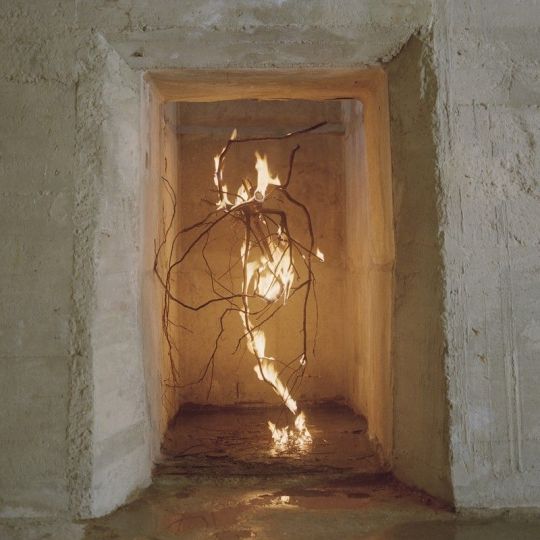
"L'arbre" of the series "When Water Comes Together With Other Water" by Claire Laude, 2012.
109 notes
·
View notes
